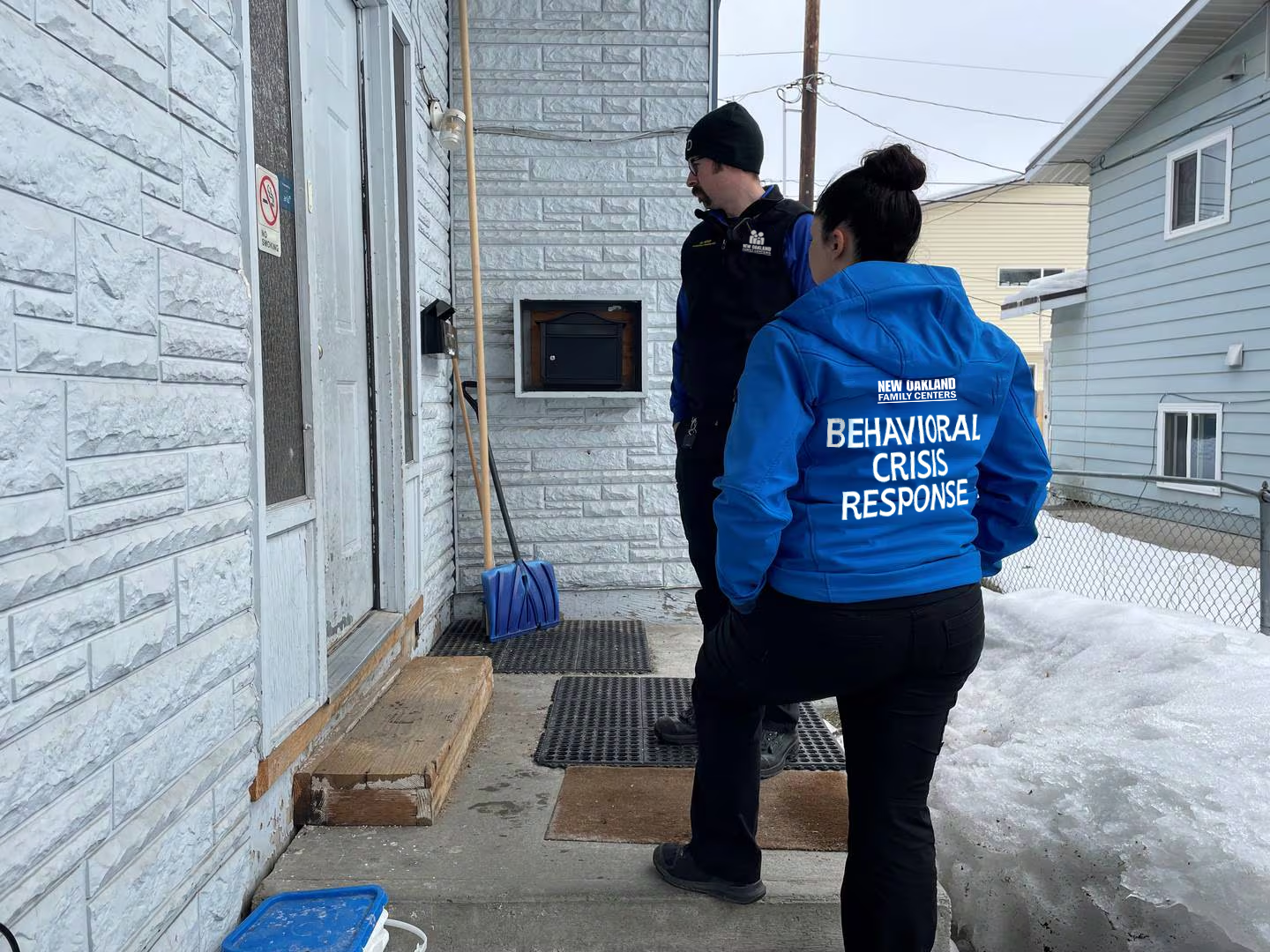24-Hour Crisis Care and
Mobile Crisis Team
Expert rapid deployment in mental health crisis
Supporting on-site where a crisis is happening
New Oakland’s 24-Hour Crisis Stabilization and Mobile Crisis Team provides immediate mental health support wherever it’s needed—whether in the community or hospital ER. Since 2013, our team has helped over 30,000 individuals across Michigan find the care path that’s right for them and their families.
Immediate
response
Expert crisis
therapists
Pioneers in
mobile crisis
State-of-the-art
technology
When a mental health crisis strikes, timely and compassionate intervention is essential. New Oakland’s 24-Hour Crisis Stabilization and Mobile Crisis Team stands ready to provide expert, on-scene support for individuals and families in distress. Meeting people in the where they live, work, go to school or int he hospital Emergency Department, our highly trained therapists work quickly to assess needs, de-escalate crises, and guide individuals toward the most appropriate care path. Since launching Michigan’s first Mobile Crisis service in 2013, New Oakland has supported more than 30,000 individuals of all ages across the state. Our innovative approach, powered by state-of-the-art deployment technology, ensures rapid response and seamless coordination. Whether triaging acute needs, stabilizing emotions, or connecting individuals to ongoing care, we are here to bring hope and resolution during life’s most challenging moments.

Mobile crisis leader since 2013
More than a decade of trusted crisis intervention, helping families across Michigan.

Support 24/7/365
Always available to stabilize crises and guide individuals on the right care path.
Key Questions
It’s a group of trained therapists who provide on-site mental health crisis support in communities or ERs, offering assessment, stabilization, and care recommendations.
Depending on where you live, individuals of all ages experiencing a mental health crisis, along with their families, can benefit from this support.
Using advanced deployment technology, our team responds rapidly to ensure timely intervention during a crisis.
Therapists assess the individual’s needs, de-escalate the situation, and recommend an appropriate care path to address immediate and long-term needs.
Call New Oakland’s 24/7 call center (800 395 3223) for immediate assistance. Our team will deploy to your location or connect you to the right resources.
